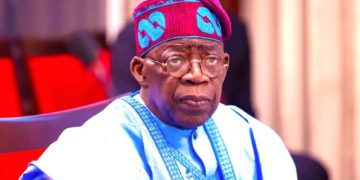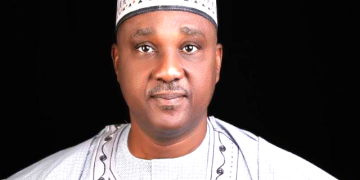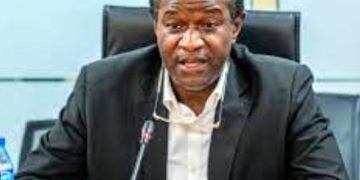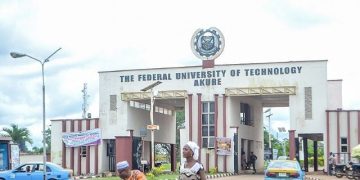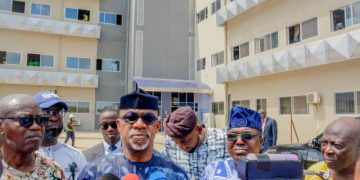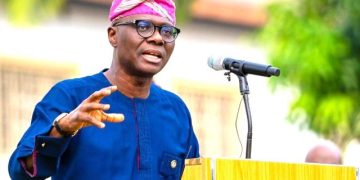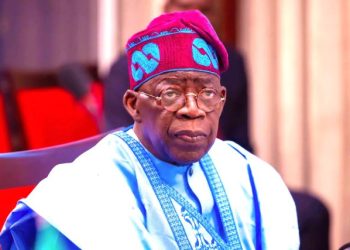WorldStage– The Speaker of the House of Representatives, Abbas Tajudeen, has said the National Assembly is “wholeheartedly” committed to the transformation of Nigeria’s economy.
To demonstrate such commitment, the Speaker said the parliament has passed and amended vital legislation to “make doing business easier, reinforce essential infrastructure, and support the growth of small and medium-sized enterprises.”
This is just as the Speaker stated that Nigeria urgently needs to maximise production and manufacturing for local consumption, for the country to end dependence on importation.
He said the country needs to transition from an import-dependent structure to “one built on domestic production, value creation, and inclusive growth.”
The Speaker made this known on Tuesday in Abuja at the opening ceremony of the Made-in-Naija Trade Exhibition and Logo Unveiling.
At the event were a former Minister of the FCT and Special Adviser to the President on Special Duties, Dr. Aliyu Modibbo, who represented His Excellency, the Vice President, Sen. Kashim Shettima. There was also the Minister of Industry, Trade, and Investment, Dr. Jumoke Oduwole, among other top government functionaries, diplomats, and exhibitors.
The Speaker said, “Our aim remains constant—to create a productive and competitive economic environment where innovation prospers and domestic industry is safeguarded. Even as we focus on increasing output, we must not lose sight of quality.
“Nigerian manufacturers must ensure that their products meet global standards. Quality assures credibility and consumer trust. It also builds national pride and enhances our position in international markets.”
In his address at the exhibition organised by the House Committee on Commerce, the Speaker commended the panel for conceptualising and delivering “this important initiative.” He noted that the committee’s efforts represent “a timely response to the national call for industrial growth and economic self-reliance.”
Speaker Abbas said, “The theme of this exhibition, ‘Reshaping the Future of Commerce,’ aligns closely with Nigeria’s broader national objectives. At the heart of this agenda is the urgent need to transition from an import-dependent structure to one built on domestic production, value creation, and inclusive growth.
“The African Continental Free Trade Area agreement offers new opportunities. To harness its full potential, we must position Nigerian goods as competitive, dependable, and regionally visible.
“This imperative for economic transformation is already reflected in government policy. In June 2025, the administration of President Bola Ahmed Tinubu, GCFR, launched the Nigeria First policy. Endorsed by the National Assembly, this policy mandates all government institutions to prioritise locally manufactured goods in public procurement. Its goal is clear—to boost domestic industrial output, reduce overreliance on imports, and create sustainable employment.”
While stating that public institutions are expected to comply fully with the Federal Government’s policy, Speaker Abbas noted that the exhibition demonstrates that policy in action.
The Speaker also stressed that one of the clearest lessons from recent experience is the vital importance of industrial capacity in achieving sustainable growth.
He said, “During a recent official visit to China, I observed how consistent investment in local manufacturing transformed that country’s economy. Nigeria must follow a similar path. We need to process our raw materials, add value domestically, and confidently promote Nigerian-made goods in regional and global markets. This is the only credible route to long-term self-reliance and prosperity.
“The dangers of ongoing reliance on imports are now clear. Such reliance weakens the naira, depletes our foreign reserves, and limits opportunities for meaningful employment. Therefore, strengthening local production is not just strategic but also vital. It is a duty we owe to the present and to future generations.”
While pointing out that citizens also have a central role, the Speaker noted that “each time we choose locally made goods, we help to strengthen our economy and reinforce our identity.”
Speaker Abbas commended the chairman of the House Committee on Commerce, Hon. Ahmed Mohammed Munir, for spearheading the initiative, noting that “this reflects the National Assembly’s growing institutional capacity to deliver initiatives that are both efficient and impactful.”

